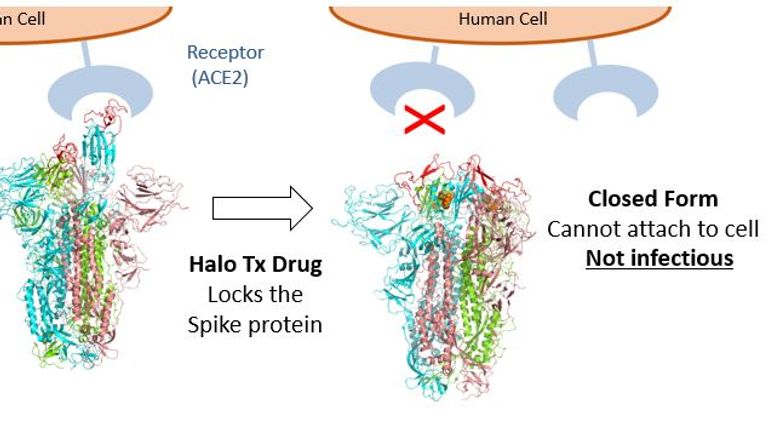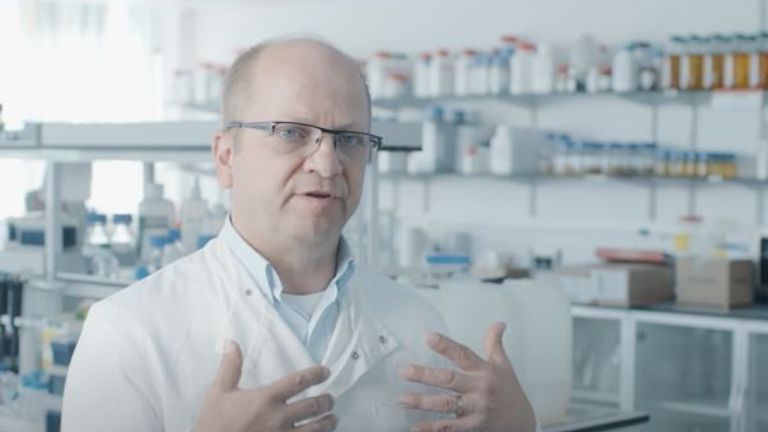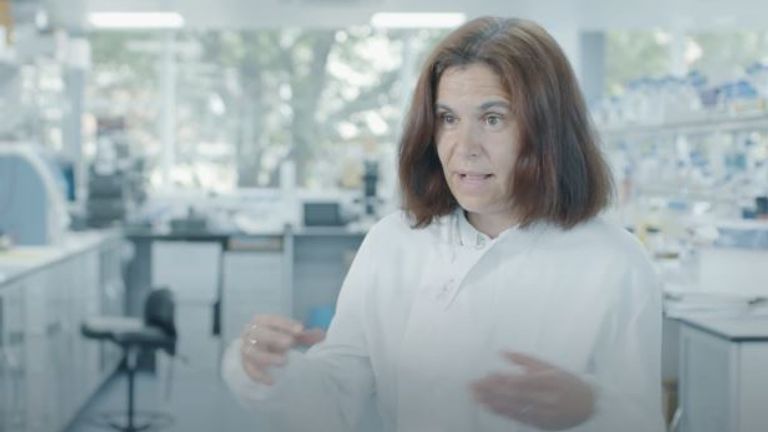A biotech company comprised of scientists from the University of Bristol is launching a bid to start a clinical trial of a nasal spray treatment for the coronavirus.
Halo Therapeutics wants to commercialise their discovery of a molecule which their research says changes the shape of the COVID-19 virus’s spike protein, preventing it from human entering cells.
The company says its studies indicate the treatments should work against all known variants of the coronavirus, including the highly contagious UK, South African, and Brazilian ones.
The scientists’ previous research found that exposing the coronavirus to the free fatty acid called “linoleic acid” effectively leaves the spike protein locked into a non-infective form.
Linoleic acid is naturally occurring in the body, but it is not produced internally, instead being absorbed through our diet.
Published in the journal Science Magazine last November, the team found that when supplemented with the drug Remdesivir, the fatty acid was capable of suppressing virus replication.
The company now aims to run multiple, parallel Phase II clinical trials to test these treatments, including a nasal spray and asthma-type inhaler, to identify whether they are safe and how well they work.
Professor Imre Berger, the director of the Max Planck-Bristol Centre for Minimal Biology, said: “The aim of our treatment is to significantly reduce the amount of virus that enters the body and to stop it from multiplying.
“Then, even if people are infected with the virus or exposed to it, they will not become ill because the antiviral prevents the virus from spreading to the lungs and beyond.
“Importantly, because the viral load will be so low it will likely also stop transmission,” added Professor Berger.
Professor Christiane Berger-Schaffitzel, from Bristol’s school of biochemistry, added: “Our vision is that at the first sign of the disease, whether you come into contact with someone has COVID-19 or you have early symptoms, you would self-medicate at home to stop the virus in its tracks and prevent you from getting ill.”
“As the virus mutates there is a real risk that presently available vaccines diminish in their productive effect and people could develop the disease again,” warned Professor Adam Finn, from the Bristol Medical School and Children Vaccine Centre.
“We need an array of readily-available, cost-effective antiviral treatments that work across all virus strains and complement vaccination efforts,” Professor Finn added.



